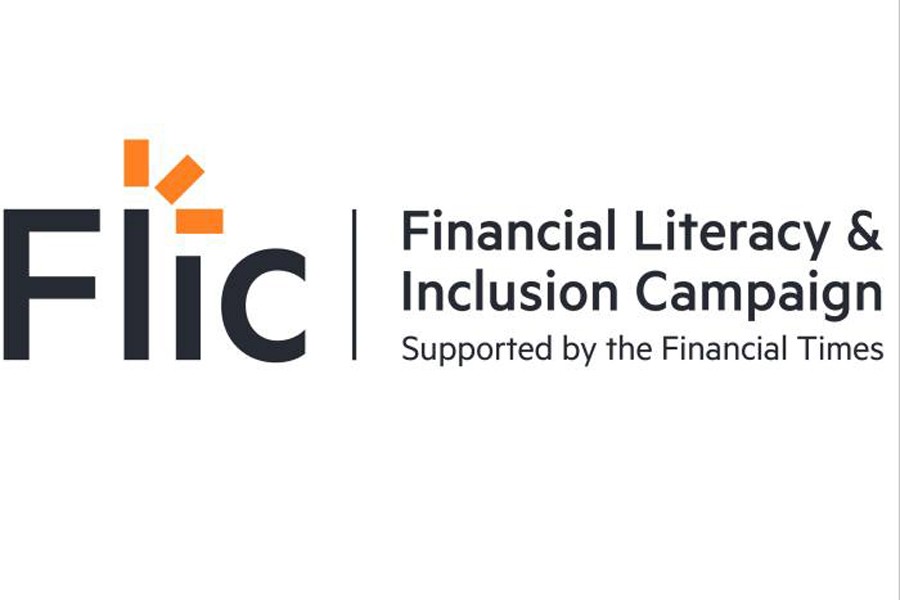Financial Times (FT), the leading economic and financial daily across the world, starts its ‘bold new charitable initiative’ on financial literacy.
The FT Financial Literacy and Inclusion Campaign (FLIC), a new FT-backed charity, has been set up to educate and lobby for policy improvements.
In this connection, in a letter to the reader, FT Editor Roula Khalaf said that the FLIC is a new charity to promote financial literacy and inclusion around the world. “Our hope is that with you, our readers, we can make an ongoing impact in an area that is consistent with our values and expertise,” she added.
“The data on financial literacy is shocking,” she said in the letter. “According to the World Bank, two-thirds of the global population are not financially literate and the correlation between financial illiteracy and deprivation is plain.”
“Despite unprecedented fiscal relief measures, the fallout of the Coronavirus pandemic has forced millions in the developed and developing worlds into financial insecurity,” Khalaf continued. “Financial resilience has never been more important.”
Meanwhile, in an editorial comment titled ‘The lasting legacy of financial literacy’ FT editorial board said that though financial education is nominally on the national curriculum across the UK, it is seldom a priority, partly due to lack of any formal assessment or examination.
“Given the pressures on teaching time, one solution is to inject more practical financial problem-solving into maths lessons,” it suggested. “ Even maths-phobic students have a natural fascination with money in the context of their aspirations and life goals, as shown by the new wave of young investors drawn in by ‘meme stocks’ and cryptocurrencies.”
The FT editorial also mentioned that regulators have already expressed concern that too much financial ‘education’ is being provided by bad actors on social media.
“Providing a better alternative in schools could address both problems,” it added.
“A firm, foundational knowledge would give students the confidence to tackle money-related problem-solving as they progress through life, from student debt and buy now, pay later deals to pension saving,” according to the FT editorial board.
Where possible, it will involve FT readers and the wider financial industry in addressing the shortcomings, first in the UK, and later, around the world.
It also argued that better communication is needed, too. “The wider financial industry should rethink the design and wording of products,” it added.
Research by the FT and Ipsos Mori found that barely half of 3,000 respondents were able correctly to compare the costs of borrowing via credit cards or bank overdrafts, regardless of their wealth, ethnicity or gender.
According to the FT editorial, “Learning needs to continue beyond the classroom. Further education, where young people have their first real test of managing money and taking on debts, is a key area. Employers also have a role; boosting financial literacy in the workplace makes sense as it is where lifetime savings are commonly accrued. As pension schemes become less generous, and employment more insecure, these are skills people need to navigate their financial lives.”
It also mentioned that where possible, the new campaign will involve FT readers and the wider financial industry in addressing the shortcomings, first in the UK, and later, around the world.
“Not every child will inherit wealth, or the parental help and advice that often comes with it,” said the FT editorial comment. “But rich or poor, higher standards of financial education can be a lasting legacy for everyone.”
The website of the campaign is: www.FTFlic.com
London-based Financial Times has a prominent focus on financial journalism and economic analysis over generalist reporting. The paper was founded in 1888 as the London Financial Guide before rebranding a year later as the Financial Times.


